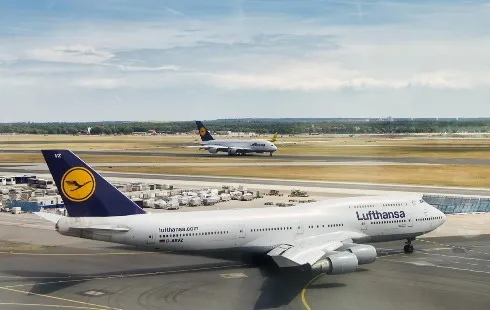
Poker Slang That Will Have You Talking Like a Pro
Section: Arts
In a significant development during the initial stages of coalition negotiations between the Union and the SPD, key financial issues have been resolved, aiding Chancellor Olaf Scholz in his upcoming trip to Brussels.
Following the agreement on a groundbreaking financial package, Union and SPD negotiators are set to meet with the Chancellor today to discuss matters pertinent to the upcoming EU summit on Thursday in Brussels. European Commission President Ursula von der Leyen has unveiled a plan aimed at substantially increasing defense spending across Europe, amounting to nearly EUR800 billion. Scholz is now traveling with a commitment that Germany will contribute its fair share.
After three rounds of exploratory talks, a consensus has been reached regarding financial matters. Union and SPD have decided to reform the debt brake enshrined in the constitution to accommodate increased defense expenditures. Moving forward, loans for defense spending exceeding one percent of the gross domestic product (GDP) will be exempt from this regulation, which translates to all expenditures surpassing approximately EUR43 billion based on the GDP estimate for 2024.
This decision comes as a surprise, particularly since Friedrich Merz, the likely future Chancellor from the CDU, had stated just a week prior that reforming the debt brake was not feasible in the near future. This sudden shift can be interpreted as a significant concession towards potential coalition partners, the SPD and the Greens, who had made it clear that an alternative plan involving a special fund for the military was unacceptable.
The reform is intended to be passed by the current Bundestag to prevent any obstruction from the AfD and the Left party in the newly elected parliament. The Union and SPD are expected to rely on support from the Greens for this vote, as they lack a majority for constitutional amendments on their own. The FDP has expressed opposition to any changes to the debt brake, with Fraktionschef Christian Dürr labeling the negotiators' plan as irresponsible.
For Chancellor Scholz, the agreement reached in these talks means he will not arrive in Brussels empty-handed. In light of the suspension of U.S. arms supplies to Ukraine, many eyes are on Germany, which stands as the second-largest military supporter after the U.S. However, the German government has not played a leading role in recent diplomatic efforts for a peace resolution in Ukraine. Instead, the initiative for a peace plan following the incident involving U.S. President Donald Trump and Ukrainian President Volodymyr Zelenskyy originated from the UK and France.
In this context, it is crucial for Germany to demonstrate decisiveness during this transitional phase between governments. The meeting at the Chancellery will include Scholz, Merz, SPD leaders Lars Klingbeil and Saskia Esken, as well as Alexander Dobrindt, head of the CSU's parliamentary group.
Negotiators have indicated that the one-percent rule for defense spending is also designed to prepare for potential decisions from U.S. President Trump. This approach would allow defense spending to scale upward indefinitely, as these expenses would be exempt from the debt brake, unlike a special fund which would impose a cap.
In parallel with the debt brake amendment, a special fund of EUR500 billion financed by loans will be established for infrastructure projects, including the renovation of roads, railways, bridges, and energy networks. This initiative aligns with demands from the SPD.
The FDP has accused the Union of breaking key campaign promises, asserting that this coalition is built on excessive borrowing. Dobrindt has stated that the Coalition's rapid agreement is a positive sign for future negotiations, expressing hope that coalition talks could commence next week.
Defense Minister Boris Pistorius, also part of the SPD negotiating team, remarked that, while they are not yet in coalition negotiations, the outcome thus far reflects a recognition of the urgency of the situation and a responsible approach from both parties.

Section: Arts

Section: Arts

Section: Health

Section: Health

Section: News

Section: Arts

Section: News

Section: Travel

Section: News

Section: News

Health Insurance in Germany is compulsory and sometimes complicated, not to mention expensive. As an expat, you are required to navigate this landscape within weeks of arriving, so check our FAQ on PKV. For our guide on resources and access to agents who can give you a competitive quote, try our PKV Cost comparison tool.

Germany is famous for its medical expertise and extensive number of hospitals and clinics. See this comprehensive directory of hospitals and clinics across the country, complete with links to their websites, addresses, contact info, and specializations/services.

Join us for an enchanting evening of classical music featuring the renowned cellist Alban Gerhardt, who has performed with prestigious orchestras worldwide since his debut with the Berlin Philharmonic in 1991. This concert showcases an exciting collaboration with talented rising stars, including the...
No comments yet. Be the first to comment!